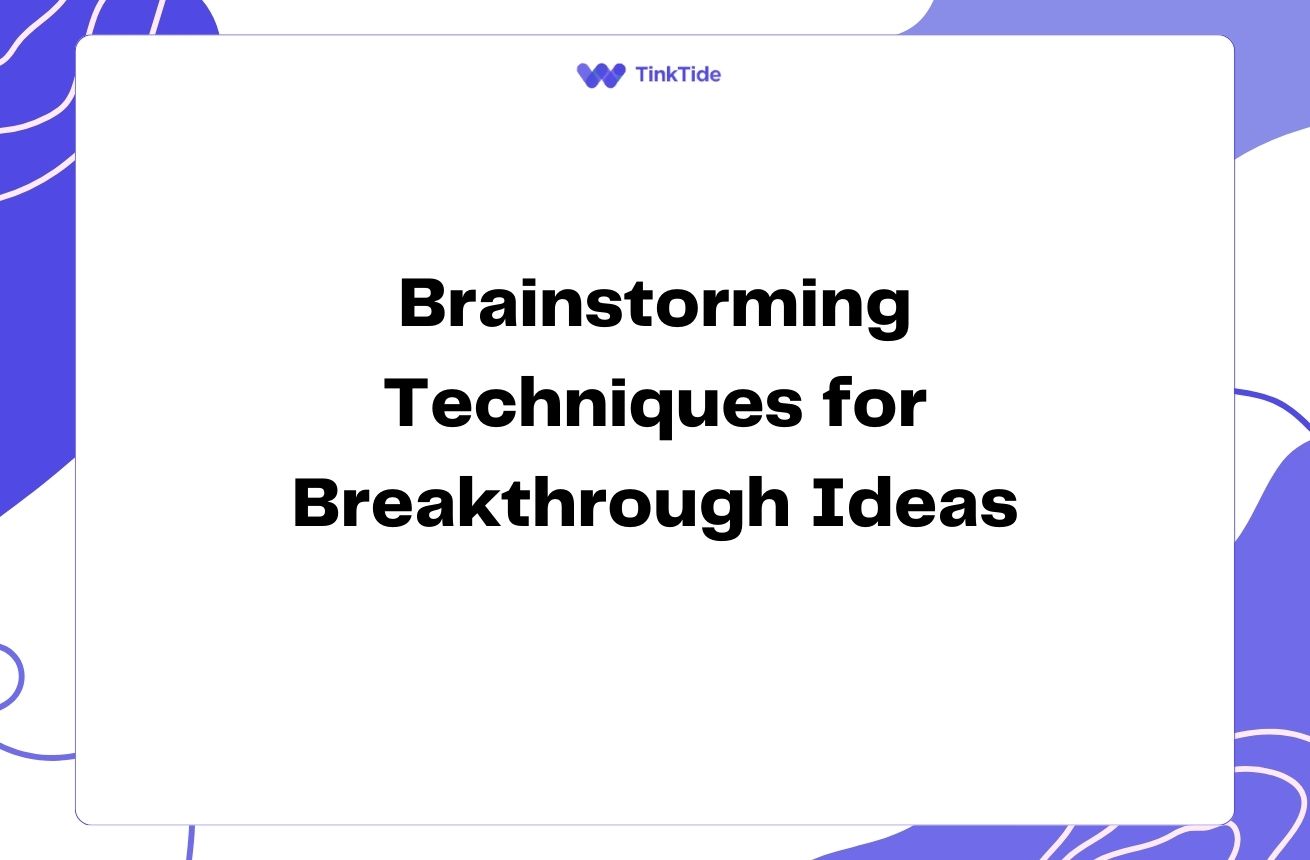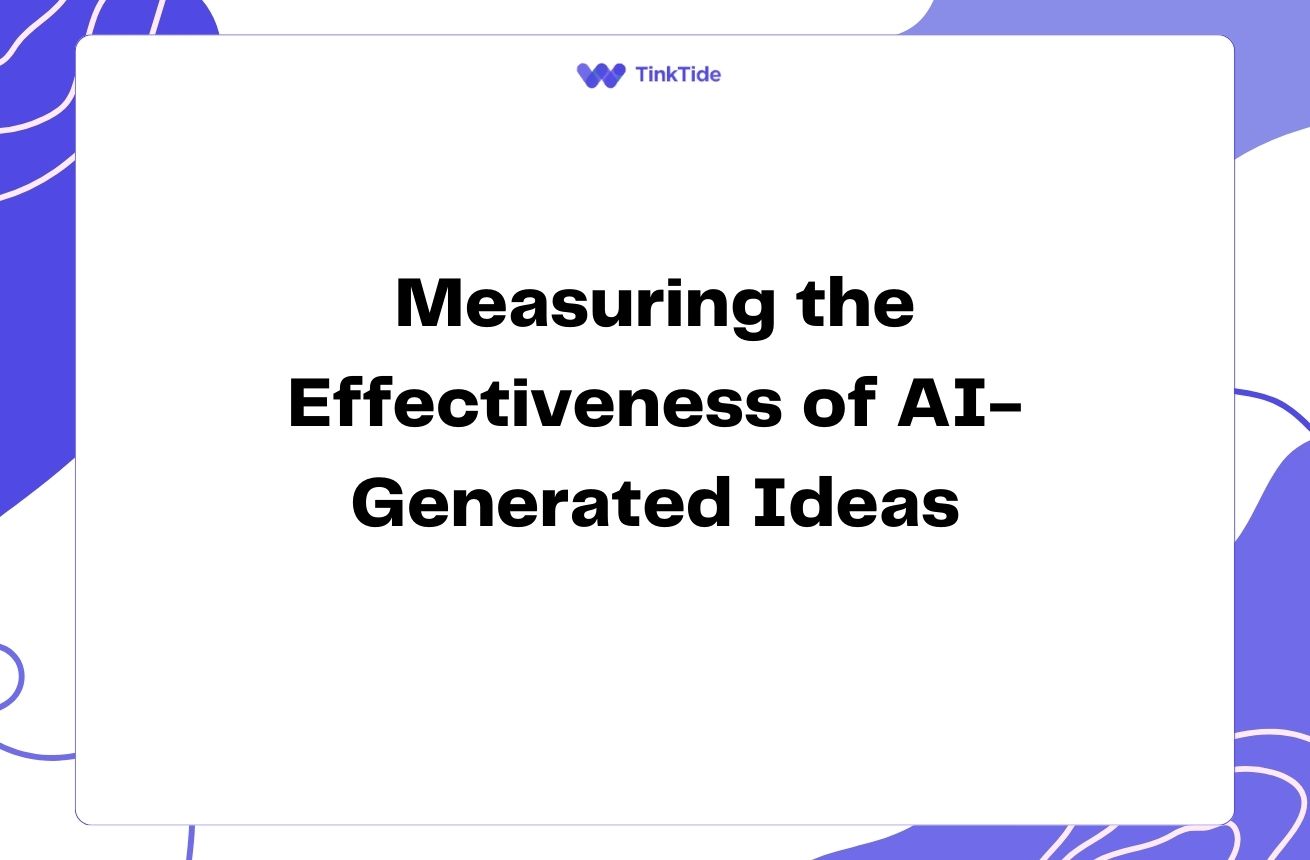Innovative Ideation in Food Tech: Farm to Table Revolution
The Power of Ideation in Food Technology
In the rapidly evolving world of food technology, ideation plays a crucial role in driving innovation from farm to table. As consumer demands shift and sustainability concerns grow, the food industry must adapt and innovate to meet these challenges head-on.
Ideation techniques in food tech encompass a wide range of creative problem-solving methods that can lead to groundbreaking solutions. From vertical farming to 3D-printed food, these innovations are reshaping how we produce, distribute, and consume food.
By leveraging ideation techniques, food tech companies can address critical issues such as food waste reduction, sustainable packaging, and personalized nutrition. These approaches not only benefit consumers but also contribute to a more efficient and environmentally friendly food system.
Let's explore some of the most effective ideation techniques that are propelling the food technology sector forward and revolutionizing the culinary industry.
Design Thinking: A Recipe for Success
Design thinking is a human-centered approach to innovation that has gained significant traction in the food tech industry. This methodology focuses on understanding user needs, challenging assumptions, and redefining problems to identify alternative strategies and solutions.
- Empathize: Understand the needs of consumers and stakeholders
- Define: Clearly articulate the problem or challenge
- Ideate: Generate a wide range of creative solutions
- Prototype: Create quick, low-fidelity versions of potential solutions
- Test: Gather feedback and refine the ideas
By applying design thinking, food tech companies can develop products and services that truly resonate with consumers. For example, Impossible Foods used this approach to create plant-based meat alternatives that closely mimic the taste and texture of real meat, addressing both environmental concerns and consumer preferences.
Biomimicry: Nature-Inspired Food Innovation
Biomimicry is an ideation technique that looks to nature for inspiration in solving complex problems. In the food tech sector, this approach can lead to innovative solutions for packaging, preservation, and even food production.
For instance, researchers at Harvard University developed an edible coating for fruits and vegetables inspired by the natural protection of grape skins. This innovation, now commercialized by Apeel Sciences, extends the shelf life of produce without the need for artificial preservatives.
Another example is the development of vertical farming systems that mimic natural ecosystems, optimizing resource use and maximizing crop yields in urban environments. These nature-inspired solutions demonstrate the power of biomimicry in addressing food production and sustainability challenges.
By looking to nature for guidance, food tech innovators can develop sustainable, efficient, and effective solutions that work in harmony with natural systems.
Open Innovation: Collaborative Problem-Solving
Open innovation is an ideation technique that involves collaborating with external partners, including startups, universities, and even competitors, to drive innovation in the food tech sector. This approach allows companies to tap into a diverse pool of ideas and expertise.
Many large food companies have established innovation labs or incubator programs to foster collaboration with startups and entrepreneurs. For example, Nestlé has launched its R&D Accelerator program, which brings together startups, students, and Nestlé scientists to develop innovative food and beverage solutions.
Open innovation can lead to breakthrough technologies and products that might not have been possible within the confines of a single organization. It also allows for faster development cycles and reduced risk, as resources and expertise are shared among partners.
By embracing open innovation, food tech companies can stay at the forefront of industry trends and quickly adapt to changing consumer demands.
Scenario Planning: Preparing for Future Food Challenges
Scenario planning is an ideation technique that involves envisioning multiple possible futures and developing strategies to address them. In the food tech sector, this approach can help companies prepare for potential challenges and opportunities in the evolving food landscape.
For example, food tech companies might use scenario planning to explore the impact of climate change on agriculture, shifts in consumer preferences towards plant-based diets, or the integration of artificial intelligence in food production and distribution.
By considering various scenarios, companies can develop more resilient and adaptable strategies. This approach allows them to identify potential risks and opportunities early on, enabling proactive innovation rather than reactive problem-solving.
Scenario planning can be particularly valuable in the food tech sector, where long-term sustainability and adaptability are crucial for success.
Implementing Ideation Techniques in Food Tech
To effectively implement these ideation techniques in the food technology sector, companies should follow a structured approach:
- Step 1: Identify the specific challenge or opportunity in the food tech space
- Step 2: Select the most appropriate ideation technique(s) for the given problem
- Step 3: Assemble a diverse team of experts from various disciplines
- Step 4: Conduct ideation sessions using the chosen techniques
- Step 5: Evaluate and prioritize the generated ideas
- Step 6: Develop prototypes or pilot projects for the most promising concepts
- Step 7: Test and refine the solutions based on feedback and real-world performance
The Future of Food Tech Innovation
As the food technology sector continues to evolve, the importance of effective ideation techniques will only grow. By embracing these creative problem-solving approaches, companies can drive innovation that addresses critical challenges in the food industry.
From developing sustainable packaging solutions to creating personalized nutrition plans, the possibilities for innovation in food tech are endless. By combining human creativity with cutting-edge technology, we can build a more sustainable, efficient, and delicious future for food.
As consumers become more conscious of the environmental and health impacts of their food choices, food tech companies that prioritize innovation will be best positioned to meet these evolving demands and shape the future of the industry.
By fostering a culture of continuous ideation and innovation, the food technology sector can play a crucial role in addressing global challenges such as food security, climate change, and public health.
Address common questions
Let's address some frequently asked questions about ideation techniques in food technology:
How can small food tech startups implement these ideation techniques?
Small startups can start by focusing on one or two techniques that align with their goals and resources. Design thinking and biomimicry, for example, can be implemented with minimal investment. Startups can also participate in open innovation initiatives led by larger companies or join food tech incubators to access resources and expertise.
What role does artificial intelligence play in food tech ideation?
AI can enhance ideation processes by analyzing vast amounts of data to identify trends, predict consumer preferences, and generate novel combinations of ingredients or flavors. It can also optimize supply chains and production processes, leading to more efficient and sustainable food systems.
How can ideation techniques address food waste reduction?
Ideation techniques can lead to innovative solutions for reducing food waste, such as developing smart packaging that extends shelf life, creating apps that connect surplus food with those in need, or designing more efficient distribution systems. Design thinking and open innovation are particularly useful for tackling this complex issue.
What are some examples of successful food tech innovations resulting from these techniques?
Some notable examples include lab-grown meat from companies like Memphis Meats, plant-based eggs from JUST, and biodegradable packaging made from seaweed by Notpla. These innovations address sustainability concerns and changing consumer preferences.
How can food tech companies balance innovation with food safety regulations?
Companies should integrate regulatory considerations into their ideation processes from the start. This can involve collaborating with food safety experts, conducting thorough risk assessments, and engaging with regulatory bodies early in the development process. Scenario planning can also help anticipate potential regulatory challenges.
What skills are essential for effective ideation in food technology?
Key skills include creativity, critical thinking, interdisciplinary knowledge (e.g., food science, technology, sustainability), empathy for consumer needs, and the ability to collaborate across diverse teams. Familiarity with emerging technologies and an understanding of food systems and regulations are also valuable.
Provide additional resources
Food Tech Connect
A platform for food tech news, events, and resources
AgFunder News
Insights and analysis on agrifood tech innovation
IDEO's Design Thinking for Food
Case studies on applying design thinking to food challenges
Biomimicry Institute
Resources on nature-inspired innovation
Food Tech Matters
Events and networking for food tech innovators
The Future of Food: MIT Technology Review
In-depth articles on cutting-edge food technologies
Summarize key takeaways
Ideation techniques such as design thinking, biomimicry, open innovation, and scenario planning are driving significant advancements in the food technology sector. These approaches enable companies to address complex challenges, from sustainability to personalized nutrition, in innovative ways.
By embracing these creative problem-solving methods, food tech companies can develop solutions that not only meet consumer demands but also contribute to a more sustainable and efficient food system. The future of food technology lies in the hands of those who can effectively harness the power of ideation to drive meaningful innovation.
As we face global challenges related to food security, climate change, and public health, the importance of continuous innovation in the food tech sector cannot be overstated. By implementing these ideation techniques and fostering a culture of creativity, we can work towards a more sustainable, efficient, and delicious future for food.
Revolutionize Your Food Tech Innovation Process
Unlock the power of ideation techniques to drive innovation in your food tech projects. Start your journey today!
Start Your Free Trial

